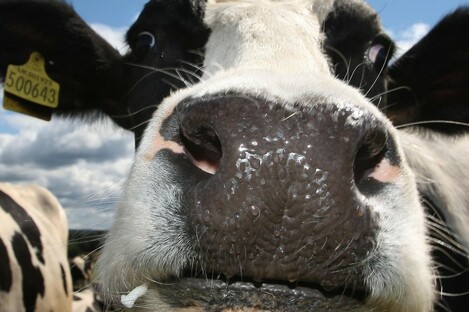RESEARCHERS AT the University of Exeter have announced their latest foray into the scientific unknown – a study into how cows make friends.
The scientists want to figure out the reasoning behind ‘social networking’ in dairy herds, and what factors determine how some cows engage with others.
ITV News said the project had begun with the use of “proximity collars” which will help to compile computerised models of which cows, in any particular herd, will tend to form friendships with others.
The project will have some agricultural benefit, however: the overall aim of the study is to improve the health and welfare of cows, and thereby increase the volume of milk they produce.
Local newspaper the Bourne Local quoted the study leader, Dr Darren Croft, as saying there was an increasing body of evidence to suggest that commercial benefits like increased milk yields were directly influenced by the welfare of the herd.
“Dairy farmers take a range of factors into account when deciding how to structure groups of cows,” he said.
“We hope that the results of our study may contribute towards a blueprint for herd management that will help farmers continue to improve the health and welfare of their cows.”
A possible by-product of the study could be to identify the reason why grazing cows, without being coaxed, tend to stand directly in a line facing either the north or south magnetic poles.
A 2008 study observing over 300 dairy herds throughout the world – using images scraped from Google Earth – showed that cows tended to orient themselves towards either of the poles without any apparent explanation.








COMMENTS (18)
Access to the comments facility has been disabled for this user
View our policy